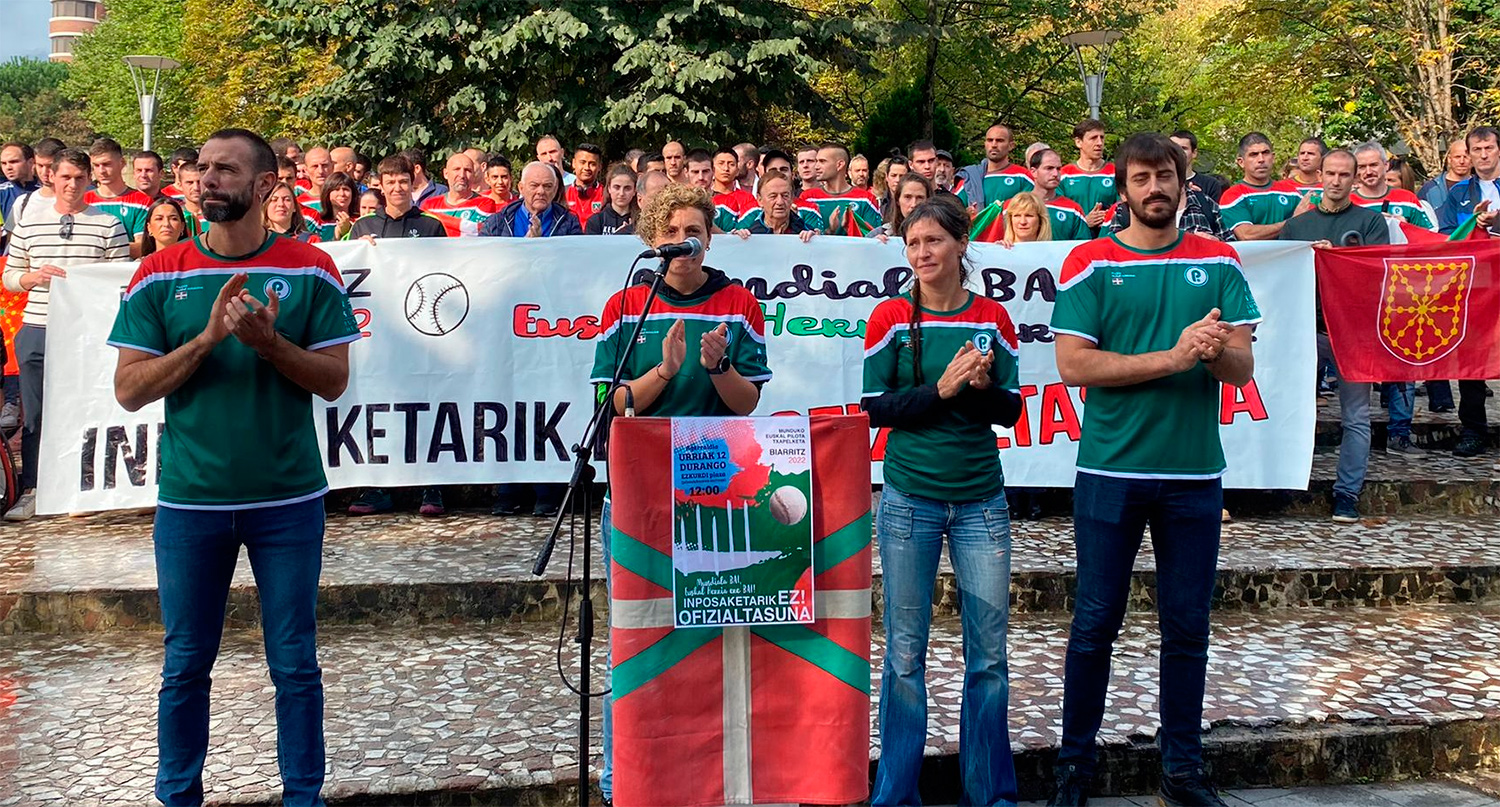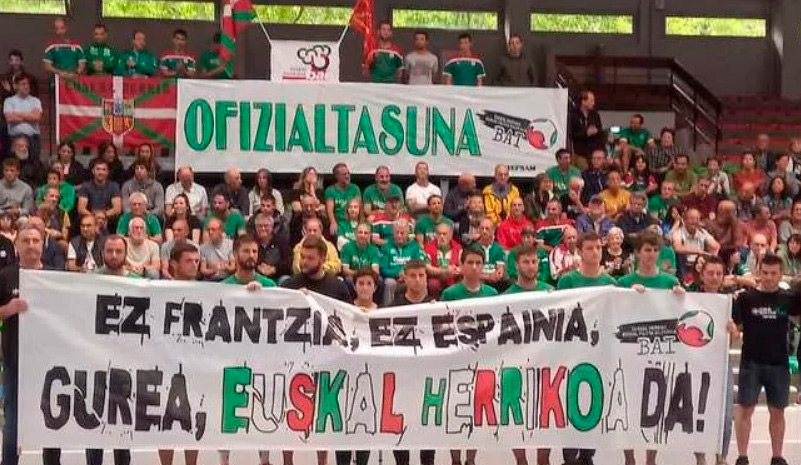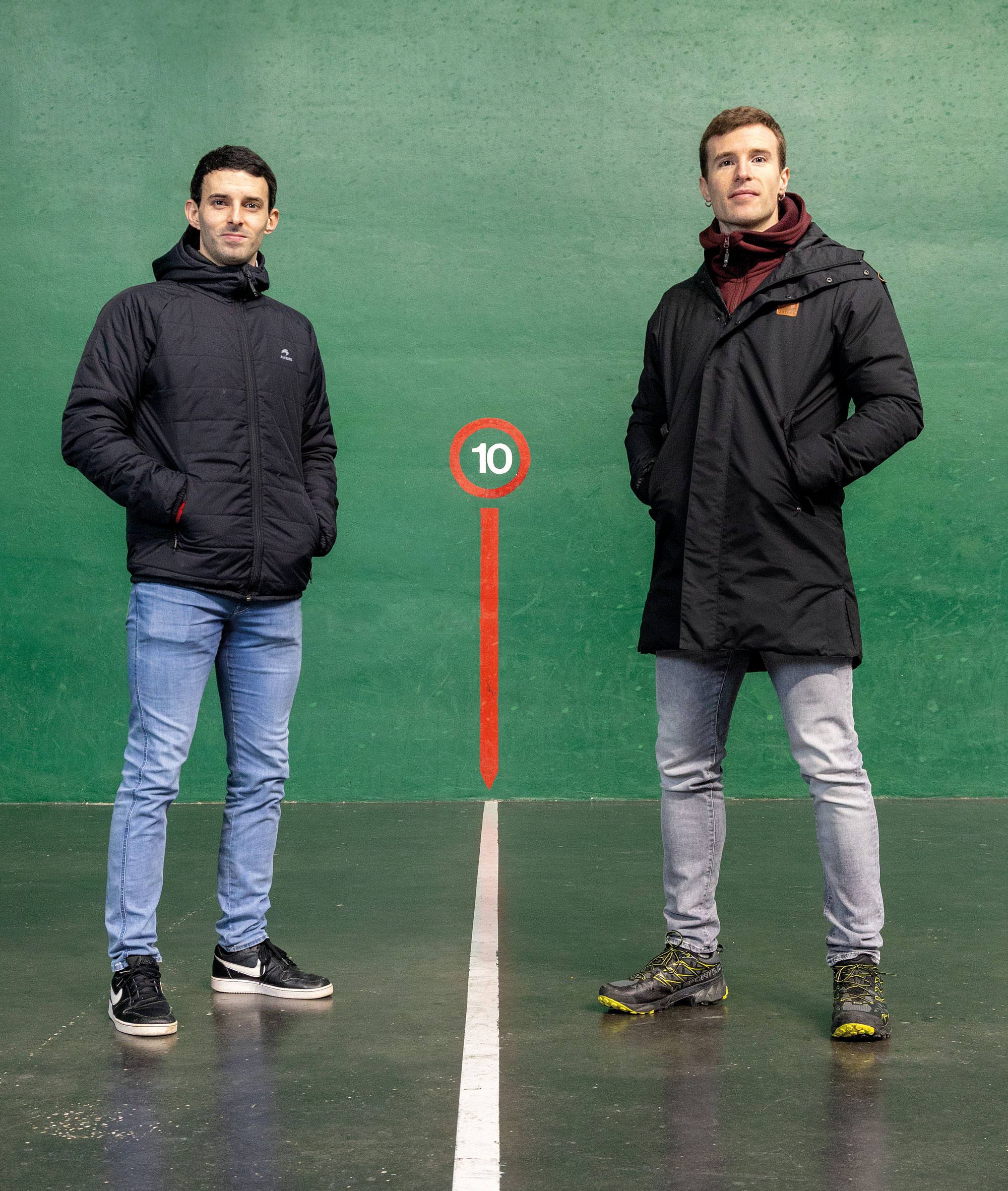"The beast seemed weird to us, but now people enjoy the women's ball"
- The morning is sunny in Urbasa and pulls out two chairs from the family embroidery of Maite Ruiz de Larramendi (Beasain, 1973). It's an idyllic setting for an interview. Apparently, their two dogs also want to participate in the colloquium. They play to attract attention. The owner has also played a lot in the area, where he grew up taking care of the sheep and making the cheese, along with his parents and brothers. He was dedicated to the ball until the sunset, on the fronton of the old hotel (photos), and is still underway at the age of 48. The former world champion keeps his shape and passion, surely Urbasa cheese and the clean atmosphere have something to do with it.
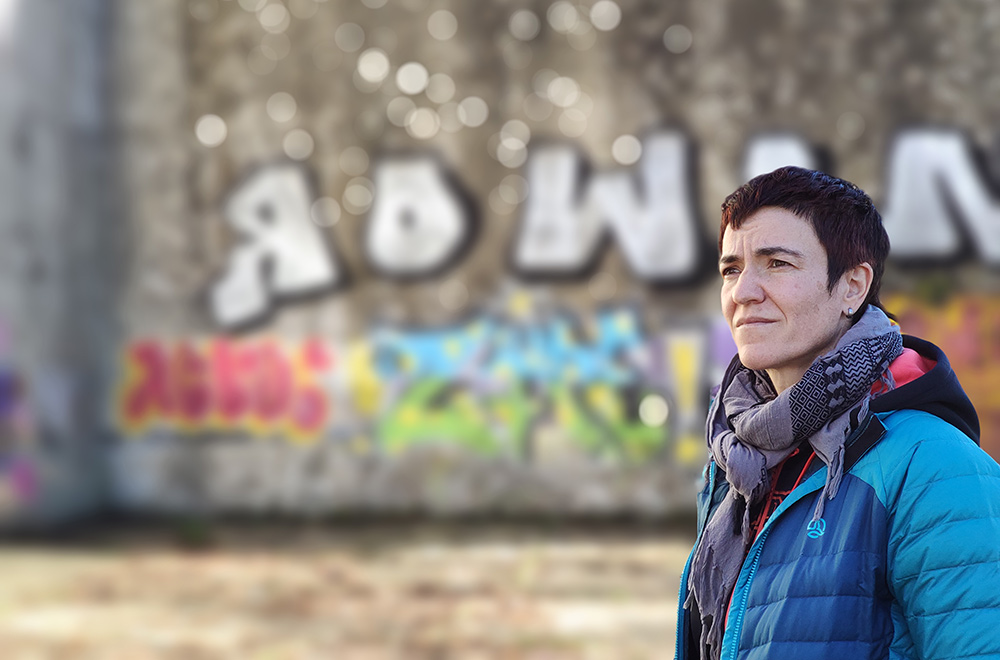
You've lived in these beautiful places for many years. He has had a great privilege.
This place means everything to me. Most of the summers of my life I've been here, and I've been very happy. It's the place that fills me the most and gives me a lot of strength. My roots are here, and it's very important for me to maintain the relationship with the roots. Here I had everything I needed: family, nature and a pediment. It was a paradise. Life in Urbasa made me feel free, and the years I spent here wouldn't change them for anything. The family is still here and I come back whenever I can.
In your house you have received your fondness for nature and animals. And you can also say the same thing about the ball, right?
My father and grandfather were very fond and all the brothers infected us. His younger brother has been on the frontis for many years and his older brother was also a long-time fan. We've had a passion for livestock and ball ever since we were young. I started giving myself to the ball almost to start walking. I worked anywhere in the house. How many games I have played in the haystack… My parents had to get used to it. My grandfather took me to the pediment and I quickly saw that it was my place.
How many years did he start playing the championships?
When I was eight years old, I got a license. In Eulate there was a small school, but they also sent us to Estella. He competed with the kids for couples. At first, those who didn't know me didn't want to play with me. But they changed their minds when they saw that I had the judge. So I was up to the age of fourteen, and as a curiosity I won a match to Rubén Beloki. He was in the semi-finals of the Navarra Championship, in Tafalla. He confessed to me that he had a good kick and he gave the ball very well. We're still friends.
Then he had a four-year cut. They were forced to give up the ball. How did it happen?
"I've done things without thinking. I had to have three shifts in the hospital and many times I've gone to play without eating or sleeping."
I was very comfortable, I was wearing well and I had no hand pain. People, however, started to put pressure on my father: when I was a woman, I had to hurt my hands, I could do something else… So much effort was made, my father gave in and told me I couldn’t keep playing the championships. I couldn't understand why. The kids had total freedom to stay in the ball, or to start doing another sport when they wanted to. To me, though, they didn't give me the opportunity. When I was eighteen, they came calling me home, and my mother didn't think twice. He didn't ask me if he said yes. I knew the ball made me happy.
Not by hand, he started playing with the shovel. And despite the obstacles, it remained firm from there.
I ran a test with Susana Muneta, and I spent a lot of time again. We were pioneers: in the villages there were Pelotaris women, but no one gave them the opportunity to federate. “Look, this rare beast is going to leave it at some point. Or, if not, play in this corner.” That mindset was in place. We were from village to village, and people were surprised. We played against the boys, there was no more, and we were proud to play the finals and win the championships.
For some, it would be a great failure to lose oneself against them.
When we started to warm up, we were not sent the ball further than the first painting. I was more patient than Susana, and I wasn't against them. I thought the ball was still very cold, and that's why it would be so weak. Susana bothered, and in the end he had a tremendous blow. He sent him up to seven, and from there they received us seriously. And then, if we won, they started making excuses for everything. I thought of them as a joke. I didn't care how the rivals looked at us, I just wanted to play the ball.
You've enjoyed it a lot and won. Do you feel that everything has been worth it?
Totally. I've enjoyed it so much. Sometimes I have had to live ugly things, but I have not been stuck. I've worked hard, but I haven't perceived it as a sacrifice, because I've done it at ease and I've had incredible results: seven World Championships, two gold medals, four silver medals and one bronze. In the World Cup I have five gold. However, the experiences of the ball fill me as much as the victories. I've met wonderful people and places. It's tremendous.
How have you managed to combine the ball with the professional sphere?
I've done things without thinking. I had to have three shifts in the hospital, and many times I've gone to play games without eating or sleeping. And back at night, back to work. If I had stopped and reflected in the cold, perhaps I began to feel a great weakness. My hobby of the ball has been imposed. At any price, I wanted to continue playing and teaching young girls. I've spent many hours on the ball, I've given it everything I have, and looking back at me, I'm surprised to see how I've been. I started working in the hospital at the age of 21 and was 27 years in the Spanish team. And a few weekends, I had four or five games. Take an account.
At the time of the Raquetists, at the beginning of the last century, the Pelotaris were professional. But you have not received nearly a penny, even if it is twice the best in the world.
I've talked about love of the ball. It has been a paradise for me to compete for championships, even in exchange for nothing. It touched me to live those times and it makes me sad. There is a big difference with the situation experienced 100 years ago by the racketeers. The Eibar school had 200 women, with more female than male licenses. The raptors were the support of many families. They made a lot of money. They occupied fronts in Barcelona, Madrid or Seville, and some moved to America. They were taken like the current tennis players. During the dictatorship, however, they were banned from playing the ball. An attempt was made to erase the history. At birth, no one knew the pelotaris.

At most, they have awarded him a grant of EUR 2,000 for four years. It has received very rewarding amounts: for example, you played a Spanish Championship for EUR 9.
As world champion, in Navarre you were awarded the Miguel Indurain Scholarship. That was the biggest income I could get. And with the nine euros you mention, we also did not have to pay for breakfast at the hotel. I believe that the problem went beyond money. Now, girls have more and more facilities in terms of technification, etc. We, however, were paid no one by the ratchet. From nine o'clock at night we had to play at eleven when the pediment was free. We were coming home about an hour.
Have you never had the urge to get rid of everything?
No. However, I have felt angry and desperate, I will not hide it. It didn't seem fair to me that the kids, doing much less, had the opportunity to become professionals, and we weren't paid for travel fuel either. I've been on the ball because of the passion, but I've seen girls of great capacity, because they haven't been given the least in exchange for playing ball. Now things are changing, and I am very happy about that. My niece Olatz started playing at the age of six, now she's nineteen, and the wings won't cut off anyone. The steps are very slow, but they have to be taken.
They made a big step in May of last year with the creation of the club Ados Pilota.
We had no other solution. It seems that the man of mustaches and ties has to come as a savior, but I'm 48 years old and I've realized that the pelotaris have to take the beans out of the pot. Otherwise, no one will wager on us. We have the utmost commitment to give the best of us and to offer you ever better ball. In return, we just ask for a little bit of protection. There's a lot of talk about equality, but television and the sponsors needed to really gamble. Izaro Agirre and I did an analysis of the situation and saw the need to create a partnership. Some were afraid, because we had to take the step, without waiting for anyone.
What is the balance of his career in almost a year?
It is the first professional pelotaris club, and we are offering the pelotaris conditions that have not existed until now. We hope it will be the starting point for real professionalism. In addition, Ados offers us a great advantage in terms of sovereignty, as we are the pelotaris the managers of the club. In summer we organized the Plazaz Plazaz tournament, and recently we played the Couples Championship. Thanks to the acquisition of important sponsors, the pelotaris have been hired during the last two months during the tournament. In addition, we are very pleased with the technical work we are doing. We are accompanied, among others, by Juan Martínez de Irujo and Patxi Eugi. It's a luxury to be able to work with them.
What atmosphere is there now on the fronts when women play?
"In Ados we are offering conditions that have not existed until now. We hope it will be the starting point for real professionalism"
People are surprised and enjoy. It looks like we make a very nice game. Sometimes it's compared to kids, and I think it's a mistake. We cannot be compared. I'd like to play in ball as much as Zabaleta, but it's not possible, and that doesn't mean that what we do is worse. We just have different ways to play: kids are more aggressive, and we make more foxes. The fact is that fans who have so far only seen the men's ball enjoy it and come to congratulate us. I am very pleased about that, because I am aware that the situation has improved substantially.
As you said, your nephew is also pelotari. What is it like to work with him? And what do you prefer, to partner with him or to fight him?
We were together for the first time in San Fermín, in one of the friendships. It was tremendous. When I was little, I told him that someday we were going to do America. It still reminds me, and I'm usually asked when we're going to go to America. For me, it's a dream. Who was going to tell me, after so many years, that I would play back at the palm of my hand and with my nephew? However, don’t think I give him a gift, and he also makes efforts and two to win. Right now, I wish I partnered with him, ha ha ha! We're both zagueros, and before I leave the ball, I'd like to play a tournament with him. At home there are more supporters, I have already gained a lot. Better than my brother Patxi supports me!
How long are you going to continue working?
I'm 48 years old, but I'm not so sorry. After the training I also hurt my ears, but the next day I'm back about to play. I feel tired because I do what I want. In addition, I have been playing with the mixed ball for just two years. From the point of view of illusion, I see myself as a beginner. As long as the body continues to respond, I do not intend to leave the ball.
CURRENT OF PUMPS
ball, even though the shovel is also wonderful.
A pediment?
Urbasa.
A couple?
Iera Agirre, or my niece Olatz. As opponents, I will also refer to them.
The most special party?
2019 San Fermín Tournament Finals. Despite his loss, the Labrit was full.
The biggest victory?
Maybe the 2010 World Championship. It had a huge impact.
The day after
my father's death, I was called to play the World Championship. It was hard to decide whether or not to leave. I said yes, and I remember my father, I came to the end.
What did you give him and take the ball off him?
Happiness and a way of life. I've lost a lot of things at home, but they've always protected me and they've understood me.
If you weren't pelotari?
It was going to be a bottler, ha!
The favorite hobby?
Go to the mountain. And specifically Urbasa. I've known many sites, but nothing like this is in the world.
The achievement of the Euskadi Selection has undoubtedly been a historic achievement. But if you stick to that, for many Basques – I too, because I am Navarro – it will be the darkest and saddest day. After enjoying the joy and warmth of the first few days, let's go back to... [+]
After so many years of struggle for it, 34 years, precisely, we are very pleased with the decision taken a few days ago, on 28 December, Innocent Day, in Pamplona, at the assembly organized by the International Federation of Basque Ball. Well, from now on we will have the... [+]
I had bought it for some time and read it above, but I have only recently been able to attend with the attention I wanted to the book Joxemari Iriondo Pilota eta Bertsoak. I have found old acquaintances and I have been raised with some of the struggles, lost and winnings that... [+]









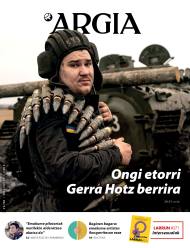

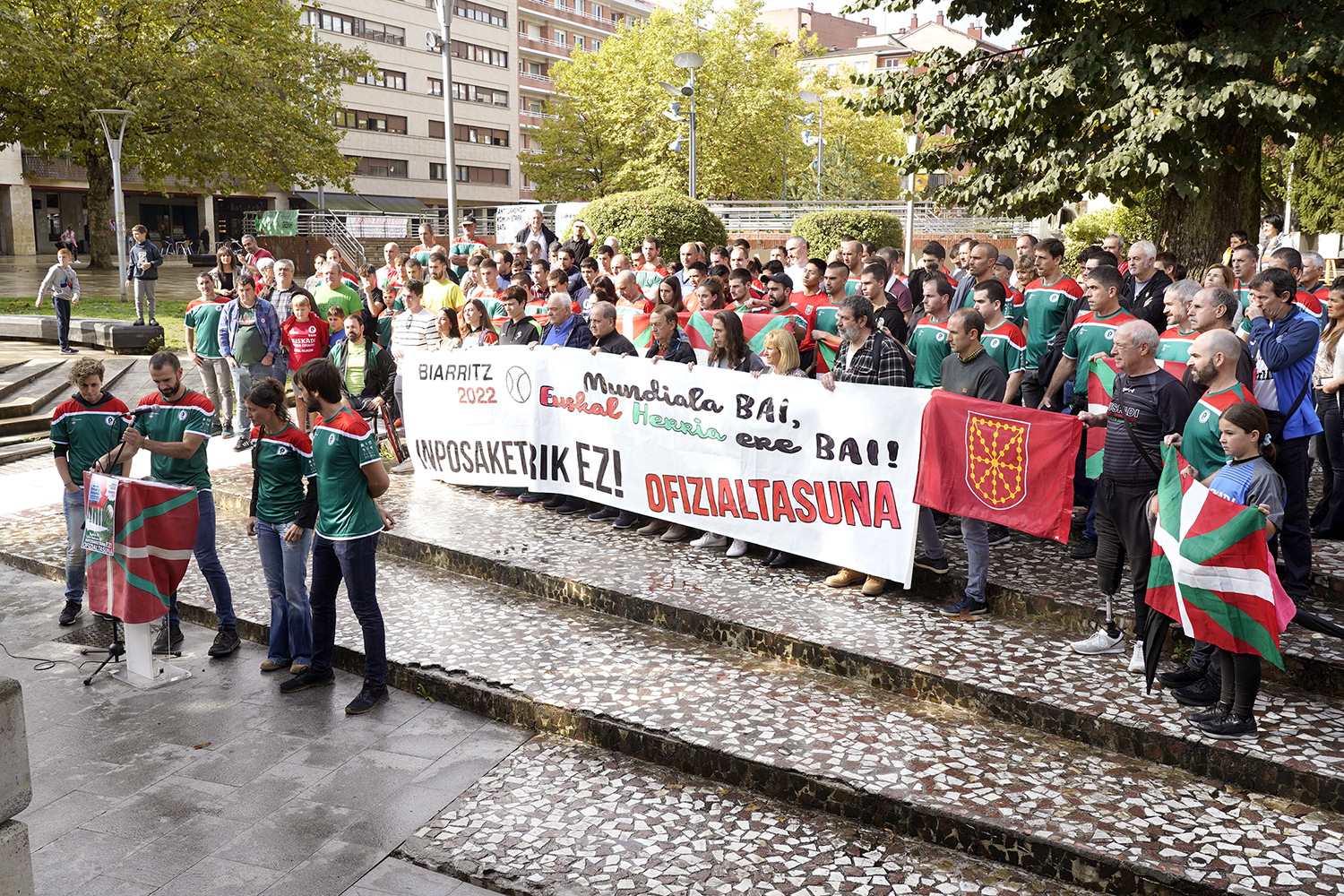
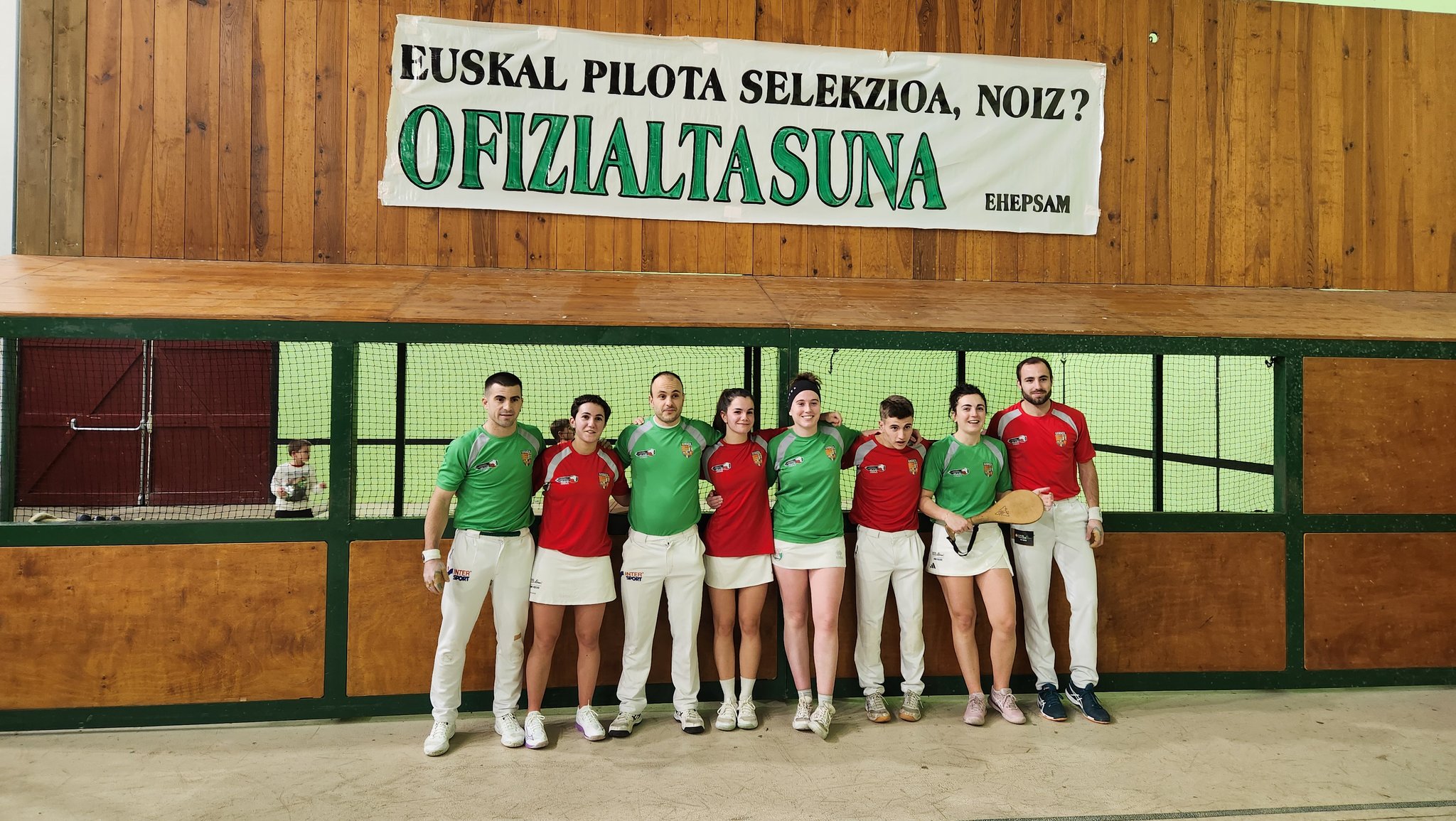
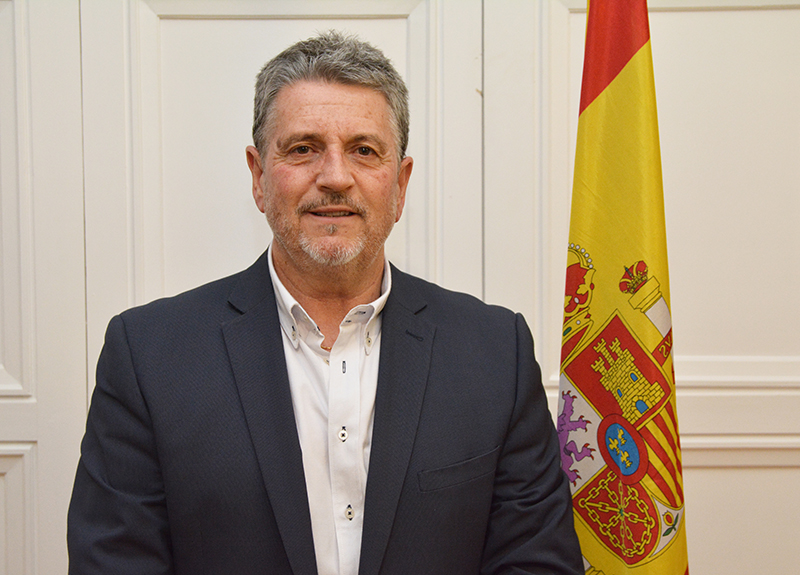
.jpg)
